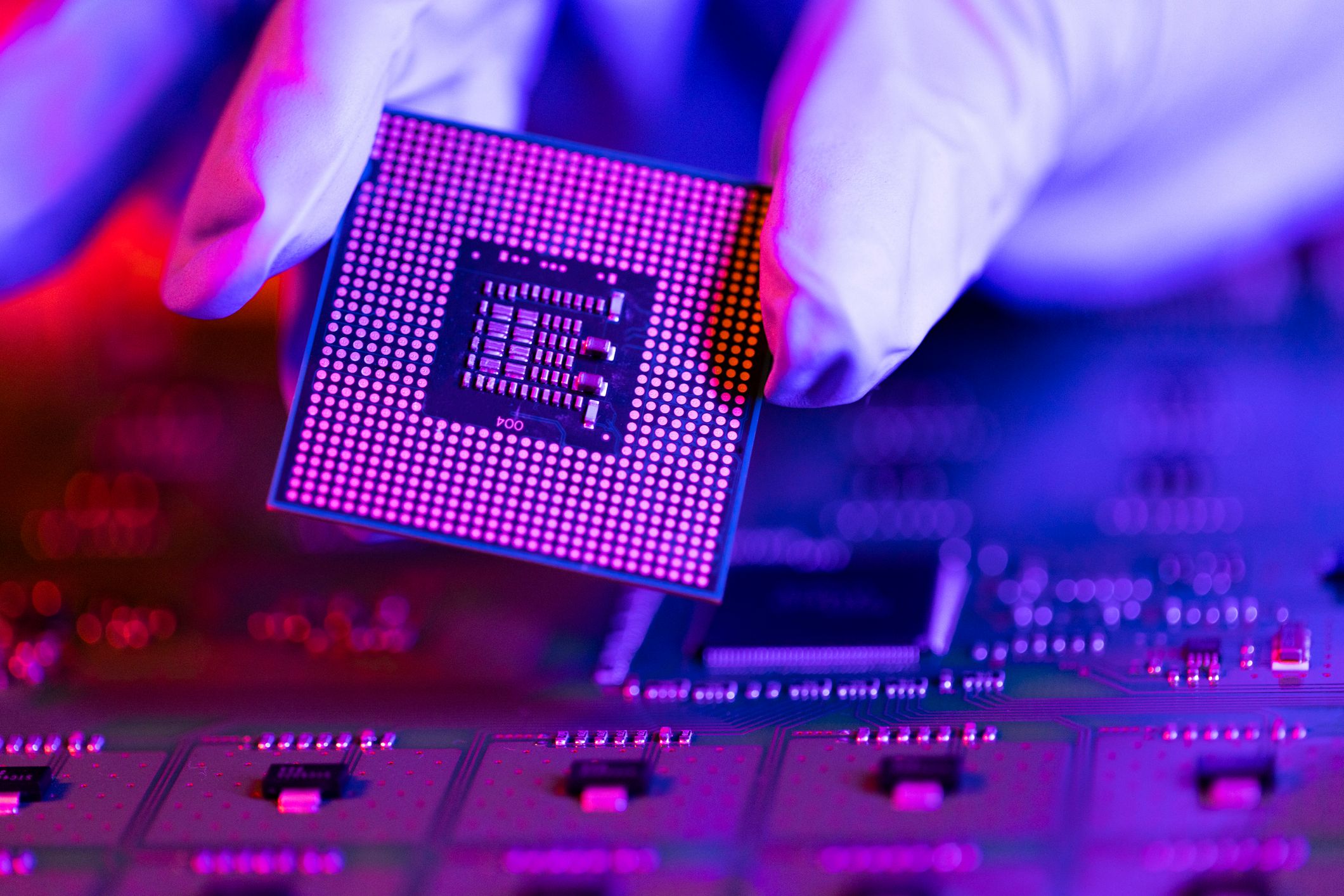It may not look like it from the stock chart, but NXP Semiconductors (NXPI 1.33%) is having a record year. The integrated device manufacturing company is a top supplier of cutting-edge technology to the auto industry. The ongoing effort by global automakers to rapidly transition to producing primarily electric vehicles is thus giving a massive lift to NXP's portfolio of silicon products.
But the economy is slowing down, and media outlets and business leaders alike are anticipating a possible (albeit mild) U.S. recession in 2023. An economic contraction would be bad news for the auto industry. Is NXP still a top auto stock for the upcoming new year?
Record sales, driven by powerful secular growth forces
Netherlands-based NXP has enjoyed a windfall, as have its peer integrated device manufacturers -- companies such as Texas Instruments and ON Semi, which both design and manufacture chips. NXP's competitors all specialize in semiconductors for industrial use, but NXP in particular has carved out a niche as a supplier to automakers. In the third quarter, more than 52% of its sales were to automotive end markets.
The Industrial Internet of Things (IIoT) segment provided another 21% of its sales, with chips that are used in things like factory automation equipment. The balance of its revenues came from chips for smartphones and communications infrastructure equipment.
NXP's outsized exposure to the auto industry has been great for its shareholders this year. Automakers haven't been able to keep up with demand for new cars after 2020's initial pandemic lockdowns, in part because they have been unable to source chips in the quantities they need. NXP has pushed its semiconductor and related component manufacturing to its limits. The combination of strong demand and record chip pricing has sent NXP's revenue and profitability to record highs.
Data by YCharts.
In the third quarter, revenue was up 20% year over year to $3.45 billion, and its adjusted operating profit margin was 36.9%. Through the first nine months of the year, NXP has returned $594 million to shareholders via dividends (at the current share price, it sports an annualized yield of 2%) and another $920 million via share repurchases (which works out to 2% of NXP's market cap).
Secular growth trends within the auto market, industrial automation, and 5G mobile networks have management expressing optimism that it can continue growing sales at rates in the high-single-digit to low-teens percentages in the coming years.
NXP gets a yellow flag
In spite of this incredible performance, NXP's stock has hardly taken any sort of lead relative to the broader stock market. Shares are down 25% year to date in 2022, though they recently bounced off the multiyear low they touched in early October.

NASDAQ: NXPI
Key Data Points
What gives? There's been worry that even an auto industry rapidly adopting new chip technology to support innovations in connectivity, in-cabin digital displays, and electric drivetrains will eventually be forced to slow down. Granted, we're not talking about a crash in demand like other consumer-facing parts of the chip industry are facing at the moment (specifically, PCs and smartphones). After all, as the modern vehicle makes use of all this new tech, it means huge sales gains for companies like NXP, which account for a much larger portion of the bill of materials used in manufacturing a car. That higher share of a vehicle's cost that accrues to NXP could offset the impact of a decline in the number of vehicles sold.
Nevertheless, signs are emerging that the feared slowdown is already happening. Management's fourth-quarter guidance implies a sequential decrease in revenue in the 7% to 1% range -- although year over year, sales are expected to rise 5% to 12%. Adjusted operating profit margins are also expected to dip slightly from the highs just reported last quarter. Many stock analysts expect NXP's revenue to slightly pull back in 2023, and I agree. I'm predicting a 5% decline in its fiscal 2023 top line and a 10% decline in earnings.
Is the stock a buy?
That being said, NXP could still be a solid way to bet on the auto industry without actually buying an automaker stock -- and without taking on the risks that come along with those companies' wide sales swings and thin profit margins. Using a discounted cash flow model, I estimate NXP stock is just over its fair value today (currently trading around $172 per share) assuming a 10% dip in earnings per share next year, followed by an average 8% increase for the following five years, and leveling off to 3% growth after that (and using a discount rate of 10% on future cash flows).
Of course, if you think the company can grow faster than that -- and management thinks that scenario is possible given the long-term demand outlook for auto chips and related industrial equipment -- NXP Semiconductors could be a top stock to buy right now. It currently trades for 17 times trailing-12-month earnings and about 19 times free cash flow. Keep this company on your radar if you're looking for exposure to automotive technology and electric vehicles.



